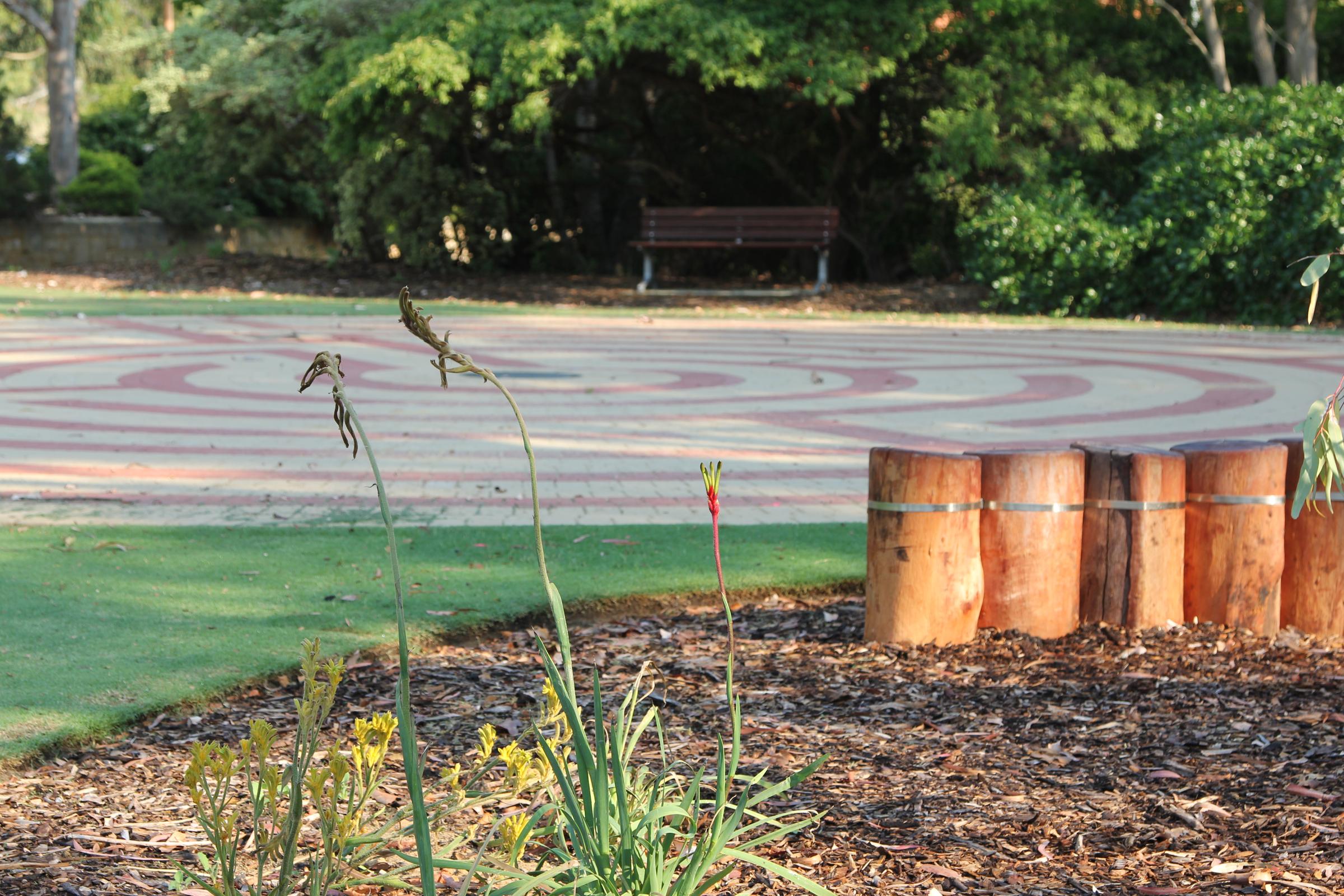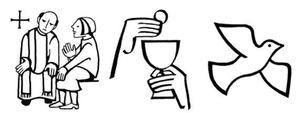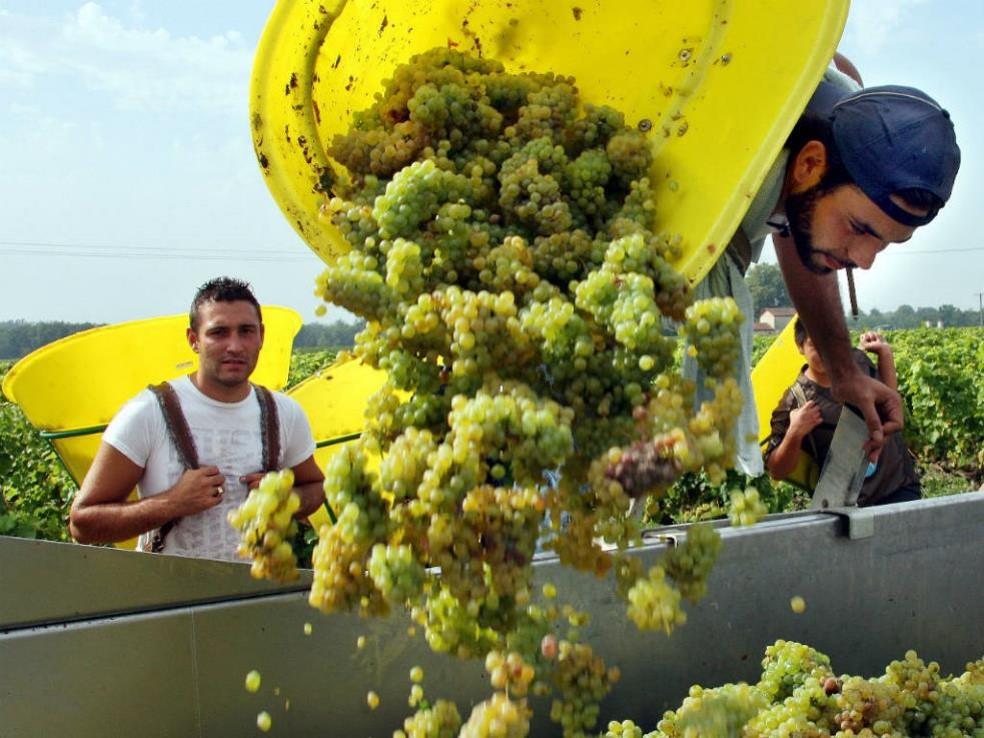Liturgy

Sacrament Program
Do you have a child in Year 3, 4 or 6?
Many students have already had the sacraments conferred in Parish celebrations. If you have not already enrolled your child in a parish program, it may still be possible to enrol in some parishes.
The following people can assist you:
- Your Parish Priest or Sacrament Coordinator.
- Mary-Anne Lumley, Parish Liaison lumley.mary-anne@johnxxiii.edu.au or 9383 0513.
- Information for all parishes may be found on the archdiocesan website: here
http://www.perthcatholic.org.au/Parishes_and_Mass_Times.htm?cms%2Erm=List
- Information from parishes on the College website.
Congratulations to the students (and their families) who will be receiving First Communion this weekend in the parish of Holy Rosary, Nedlands. Let us remember the students and families in our prayer.
‘GOOD NEWS’ for 25th Sunday in Ordinary Time
“Why are you jealous because I am generous?.” (Matthew 20:1-16)
The reflection for this Sunday’s gospel has been prepared by the Australian Bishops, as this Sunday, 24 September, the Australian Church celebrates Social Justice Sunday.
For 2017-2018 the Australian Bishops’ Social Justice Statement is titled: ‘Everyone’s Business: Developing an inclusive and sustainable economy’. The Statement calls for an economy that is founded on justice and offers dignity and inclusion to every person.
The Gospel reading for this Social Justice Sunday is Jesus’ parable of the workers in the vineyard. Using an everyday example of economic hardship, Jesus teaches how the reign of God is open to all, generous, and especially mindful of those left behind. God provides sufficiently and fairly for each person, all the while attentive to the needs of those who experience exclusion and have little hope.
The vivid image of market place and vineyard still resonates. That the employer goes four times during the day to find workers in desperate need speaks of the precarious existence of the day labourer, and a market that fails to serve the whole community.
This Social Justice Statement considers Australia’s economic priorities. It draws from the teachings of Pope Francis and his predecessors, highlighting how extreme versions of free-market economics have failed to serve all. Inequality has been growing in Australia. Many have missed out on opportunities to secure stable employment and a just share in income and wealth – even after 26 years of continuous economic growth.
When it comes to the social justice of the entire economic system, the statement draws on new understandings of human development from economics and social policy that emphasise how the wellbeing of humans and all of creation must be an economy’s central purpose.
The Church has been part of a global movement for ‘inclusive growth’. It is not just about improving sections of the economy that have failed the poor. It is not about continually picking up people who have fallen through the system and placing them back into a market place that cast them aside in the first place.
The Bishops of Australia are calling for a new approach that prevents exclusion from the outset and, like the owner of the vineyard in our Gospel reading, engages all people as dignified, active contributors to sustainable and inclusive growth.
The parable may seem unfair to us. Not only does the owner of the vineyard employ workers who, through no fault of their own, find themselves locked out of the market system, he also pays all of them one denarius – even those who completed only one hour’s work. But the denarius was the basic daily pay of labourers, sufficient for a living wage, and akin to our notion of a minimum wage. The payment given by the owner recognises the dignity of all, regardless of the hours they worked. The generosity of the owner is shown in how he places the human person, not the prevailing standard of the market, at the centre of his concern.
We see a vineyard in which all are engaged as active contributors to the economic enterprise. We are called to work for an economy that is inclusive and capable of putting the needs of the poor before the wants of the rich. We envisage an alternative to market places that are harsh and inhospitable: the vineyard, lush and green, sustainable in its growth and inclusive in its economy.
As we have said, Jesus’ parable speaks as much to us now as it did to the listeners of his time. The Church does not believe an ideal world is possible on earth. Only God can fully usher in the perfection of His Kingdom. But Christ’s promise of that Kingdom calls us to work for just social transformation based on the great commandment to love God and to love our neighbour, especially the most vulnerable (Matthew 22:34–40).
Jesus invites us to see others as God sees them, as unique and precious, and to treat them accordingly. It is an offence in the eyes of God to treat people simply as commodities, to be discarded when no longer commercially profitable. We are called to challenge commonly held assumptions and ways of operating that undermine human dignity and damage the most vulnerable of our neighbours.
Source for article and image: Australian Catholic Social Justice Council, 2017. http://www.socialjustice.catholic.org.au/publications/social-justice-statements
For further details about the Social Justice Statement, visit the Australian Catholic Social Justice Council website (www.socialjustice.catholic.org.au) or call (02) 8306 3499.
Community Liturgy
Community Masses resume after the holidays. On Friday 13 October, Community Mass will be prepared by Year 8 students, and we especially look forward to welcoming all Year 8 students and their families. As always, everyone is welcome at our celebration of the Eucharist. Further queries about Community Mass:
lumley.mary-anne@johnxxiii.edu.au or 9383 0513.
When: Fridays in Term Time
Time: 8:00-8:30am
Where: College Chapel


